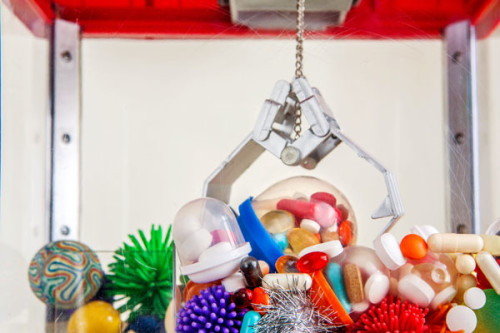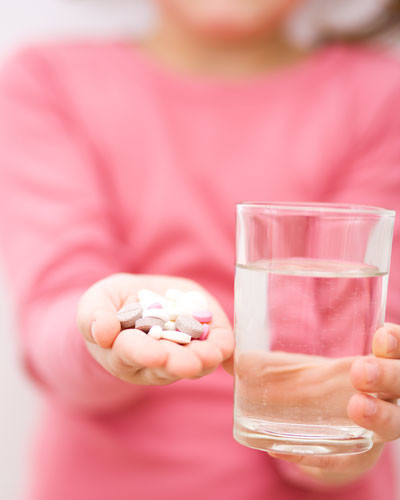If you’re a parent, there’s a chance you’ve been faced with the decision to give your child prescription drugs. Whether it’s ADHD, bipolar disorder or depression, having a child with a chronic condition can motivate many parents to medicate first and ask questions later. But, are prescription drugs always the right answer? Will they always work, and, most importantly, are they safe? Keep reading to find out.

ADHD Drugs: Risks vs. Benefits
ADHD is a common childhood illness, characterized by extreme hyperactivity and the inability to pay attention or stay focused on a particular task. Children with this disorder typically experience problems at school and at home, and may have difficulties with friendships, familial relationships and extracurricular activities. Understandably, these effects prompt parents to seek professional help, which often includes prescription medications. Typically, the medications used to treat ADHD are categorized as stimulants, and have been shown to balance chemicals in the brain, which can often improve symptoms like poor concentration and hyperactivity.
As with most prescription drugs, ADHD medications are associated with a number of risks and ill effects. First of all, since every case of ADHD is different, perfecting a child’s particular prescription and dose often requires trial and error; and, until medications are stabilized, children may experience a number of uncomfortable side effects, or, in some cases, a worsening of ADHD symptoms. And while side effects of ADHD drugs can vary, they can include the following:
- Anxiety
- Depression
- Irritability
- Aggression or hostility
- Seizures
- Hallucinations
- Mania
- An increased risk of suicide
- Risk of heart problems
What’s more, since ADHD drugs are stimulants, they can be addictive. When addiction to these types of medications occurs, users may move on to “harder,” more illicit drugs like cocaine or methamphetamine, which, for teens and young adults, especially, can result in life-threatening risks and complications. In these instances, long-term, residential care is often necessary in addressing the causes and effects of addiction. According to addiction experts at tucsontransitionalliving.com, intensive, inpatient care can provide young adults with the tools they need to forego addictive substances in favor of a healthy, sober, productive lifestyle.

Antidepressants for Children: Are they Safe?
Among children and teens, depression, bipolar disorder and other types of mental illness are becoming exceedingly common. And while antidepressants and other psychiatric drugs are generally considered safe for use in adults, they carry bigger risks for children and young adults. Designed to correct the chemical imbalances associated with depression and other mood disorders, antidepressants are linked to an increased risk of suicide and suicidal behaviors when taken by individuals under the age of 25. Plus, like ADHD drugs, antidepressants often require frequent changes in prescription and dosage, which may exacerbate symptoms like mood swings, sadness, aggression, irritability and more.
Should your Child Take Prescription Drugs?
So, with everything we know about antidepressants, ADHD medications and other prescription drugs, should you ever give them to your child? The answer to that question lies in the severity of your child’s illness, as well as any additional factors that may make his or her case unique. Also, before giving your child prescription drugs, exploring other avenues can be beneficial. In many cases, depression, ADHD and other mental health conditions can be treated through non-prescription methods like psychotherapy and behavior modification techniques. However, if your child does, in fact, need prescription medications, education and awareness can help in assessing symptoms and side effects, and determining if changes need to be made.
Having healthy, happy children is every parent’s dream. And if you have a child suffering from depression, ADHD or other illness, prescription drugs may be the answer you’re looking for. But, while these medications can provide relief, they’re not always right for everyone. Thankfully, with the information provided here, you’re better equipped to make the right decision regarding your child and prescription medications.
What do you think about giving yourself and your family lots of medications? Do you try to minimize exposure to them or not get too concernced?


